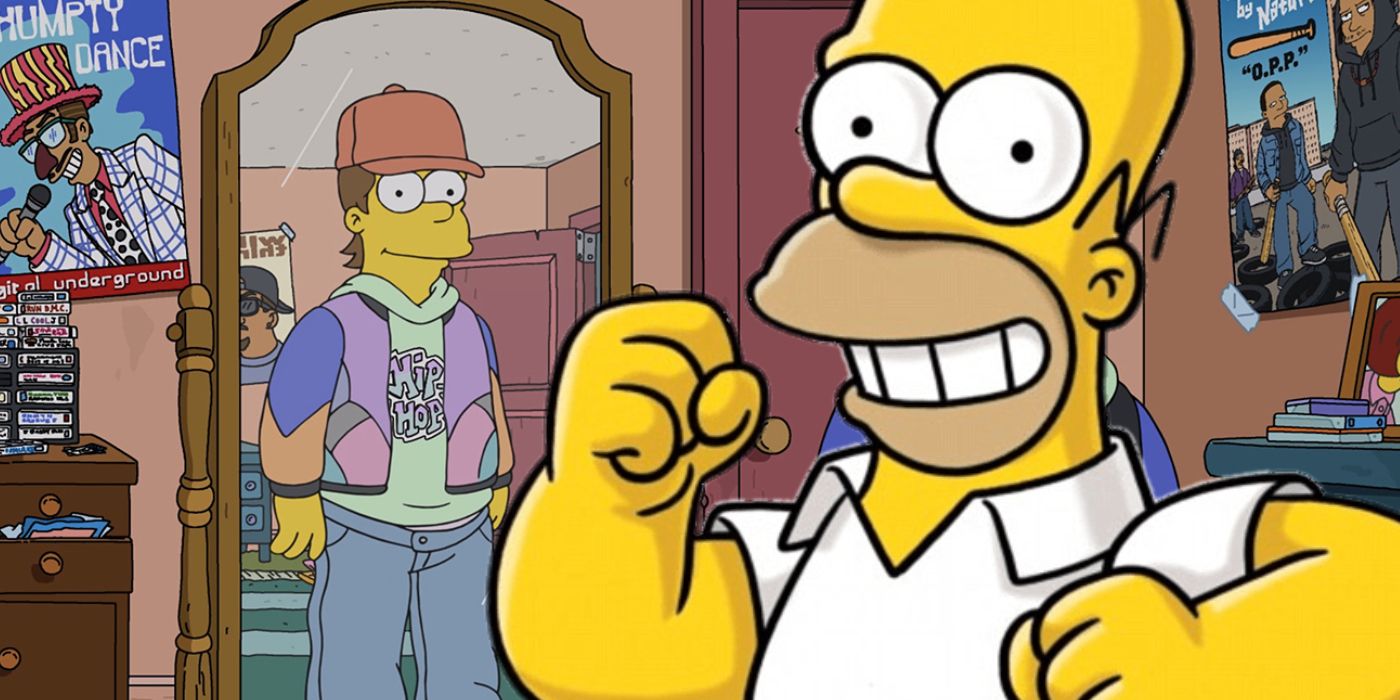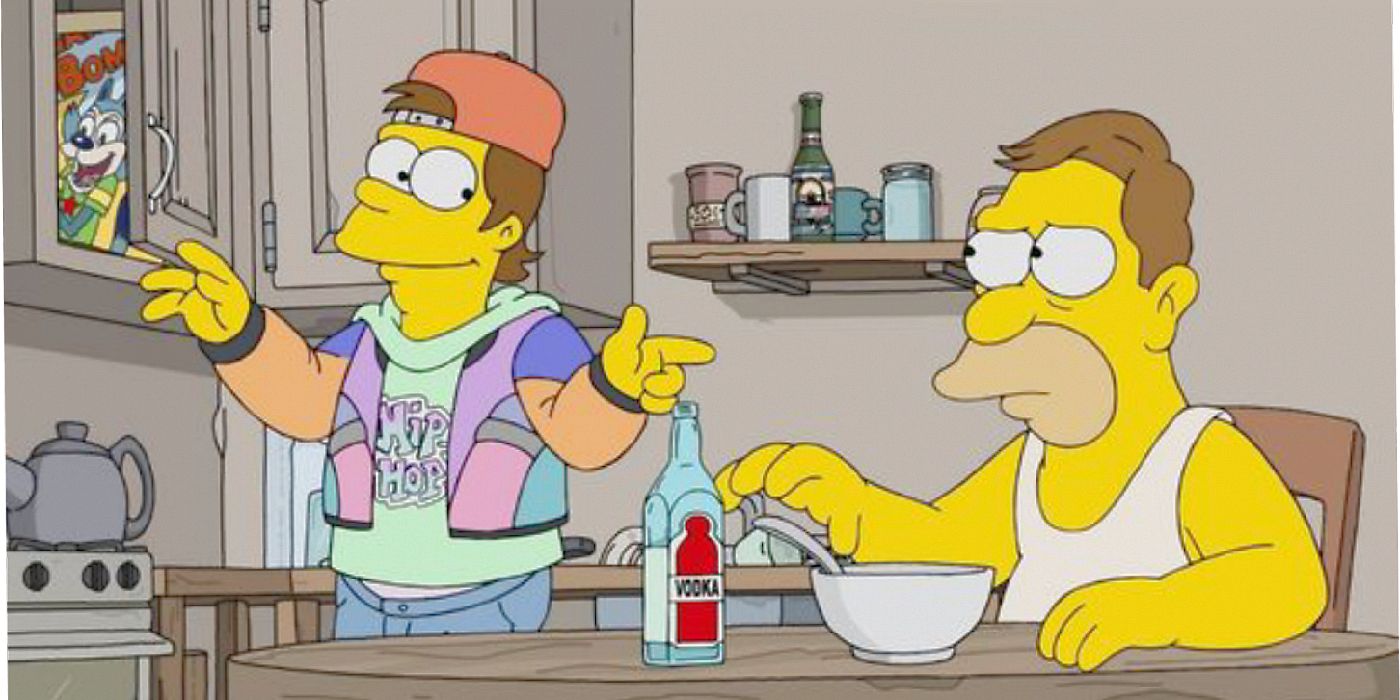The Simpsons season 33 premiere promises songs, a Kristen Bell cameo, and the return of one of the biggest issues that have plagued recent seasons of the series. Since its inception, The Simpsons has never cared about continuity or canon, as it befits a surreal, silly animated family sitcom. The Simpsons prizes laughs over everything else, meaning the lore and backstories of everyone in Springfield—the titular family included—are wont to change on a dime for the sake of a throwaway joke.
However, while this approach sounds appropriate for a goofy comedy show, in recent seasons, fans have been frustrated by the confusing non-canon of The Simpsons. When one season 32 episode of The Simpsons depicted Homer as a teenager in the ‘90s, the ensuing annoyance felt by viewers was addressed by executive producer Matt Selman. Selman took to Twitter to say that nothing was canon on The Simpsons, an answer that left few viewers satisfied.
Now, the star-studded season 33 premiere of The Simpsons, “The Star of Backstage,” looks set to drag this problem back into the spotlight. The episode will be told entirely through song, a daring experiment the series hasn’t attempted before. However, while Kirsten Bell’s appearance as Marge’s singing voice will likely interest fans (and is a promising instance of a Simpsons celebrity cameo not playing themselves), one plot detail betrays this repeated issue with recent Simpsons outings. The school musical that Marge fondly recalls staging as a high school student is titled “Y2K: Millennium Bug,” implying that The Simpsons will be doubling down on the decision to retcon Homer and Marge’s ages and make the pair teens in the ‘90s.
The reason that Homer and Marge being teens in the ‘90s could be an issue for some fans will likely be obvious to viewers of a certain vintage but nonetheless needs to be explained. The popularity of The Simpsons was at its peak throughout the ‘90s, when the series was among the most influential television shows and was enjoying an unprecedented combination of critical acclaim and mainstream fandom. The Simpsons spawned countless rip-offs, gave rise to the likes of South Park and Family Guy, and was a veritable merchandising machine throughout the decade before its popularity petered out, and critical performance began to waver during the early ‘00s.
As a result, it is tricky territory for The Simpsons to attempt a (however gentle) satirical look at the decade since the series itself was a huge part of the era's cultural landscape. When, for example, Bojack Horseman set an episode in 2007 and accurately mocked the culture of the era, the Netflix hit had no baggage to address as it debuted in 2014 (and remained a minor, if popular, cult hit throughout its run). In comparison, any Simpsons flashback set in the ‘90s ignores the fact that The Simpsons themselves were as iconic a part of the decade’s pop culture as Friends and Nirvana. The influence The Simpsons has had on television has been monumental, and the show’s attempts to retcon its own existence in ‘90s-set episodes are bizarrely existential and surreal.


